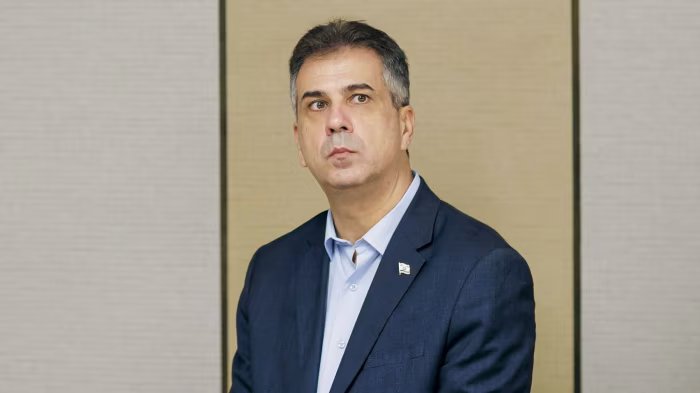Unlock the Editor’s Digest for free
Roula Khalaf, Editor of the FT, selects her favourite stories in this weekly newsletter.
Israel’s energy minister said he was holding up the approval of a $35bn natural gas deal with Egypt, claiming that he was defying US pressure until he could secure better commercial terms for the Israeli market.
Eli Cohen said his refusal had prompted US energy secretary Chris Wright to cancel an upcoming trip, a fresh sign of public friction between Israel and the Trump administration. The US energy secretary’s spokesperson did not immediately respond to a request for comment.
Cohen’s decision complicates Israel’s relationship with the US, which is lobbying on behalf of Chevron, a co-owner of Israel’s Leviathan gasfield, the primary source of the proposed exports to Egypt.
The deal, if approved, would almost triple flows of natural gas from Leviathan to Egypt, deepening its reliance on Israeli gas at a time when Egyptians are angry at their neighbour’s devastating offensive in Gaza.
Political tensions between Israel and Egypt have cast a shadow over the deal made by Israeli energy company NewMed.
Cohen himself has called for the complete destruction of Gaza’s two main cities, Rafah and Gaza City, while Egypt’s President Abdel Fattah al-Sisi has described the Israeli offensive as a genocide, and bristled as Israel’s military has taken up positions alongside its border with Gaza.
Egypt has played a crucial role in mediating between Israel and Hamas to bring about a tenuous ceasefire, with Egypt’s intelligence chief even meeting recently with Prime Minister Benjamin Netanyahu.
But Cohen’s office framed the dispute in commercial terms, saying he wouldn’t approve the deal “until Israeli interests are secured and a fair price for the Israeli market is agreed upon”, according to a statement.
He did not respond to a phone call and text message seeking further details.
NewMed said there had been no change to the deal. “We are confident that all necessary approvals will be received shortly and that the transaction will be fully implemented,’’ it said.
A person familiar with the situation suggested the dispute centred around the price NewMed is seeking to charge its Israeli customers in ongoing negotiations.
“This is not a commercial dispute between Israel and Egypt,” the person said. “It is an internal commercial dispute in Israel.”
The deal, signed in August, would see NewMed send an additional 7.5bn bcm of natural gas, much of it through a new pipeline, by 2029. NewMed said at the time of the signing that it would be investing $2.5bn to drill two new wells.
Leviathan, which is co-owned by NewMed, Chevron and Ratio Oil, is one of the largest gasfields in the Mediterranean and contains about 600 bcm, with production expected to last until 2064.
Israel has sought to use that gas to tie its neighbours, including Jordan and Egypt, into commercial agreements that deepen their dependence on a one-time foe, and turn Israel into a major energy player in the Mediterranean.
Additional reporting by Malcolm Moore in London and Jamie Smyth in New York

